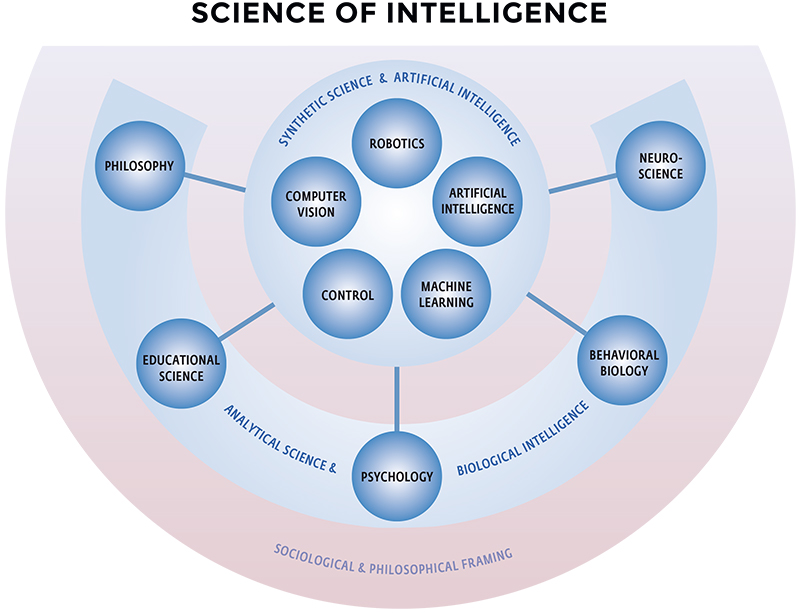Concept of intelligence
Overcoming the fragmentation of intelligence research: the importance of an interdisciplinary approach

@SCIoI
SCIoI strives to overcome the fragmentation of intelligence research. In this project, we focus on this central goal and develop the groundwork for an integrative theoretical framework that supports and reflects the interdisciplinary dialog within SCIoI regarding the concept of intelligence, identifies and addresses important challenges, and provides avenues for future research. This is fundamentally a theoretical and conceptual endeavor, and hence calls for philosophical methods. The project has three aims:
Develop and revise the working definition of intelligence of SCIoI as research in the cluster moves forward in order to capture paradigmatic forms of intelligence and to distinguish them from other forms of adaptation or behavioral control, particularly from cognition in general.
We will also carry out questionnaire-based studies (experimental philosophy) to reveal what features lay people consider to be central and/or essential to intelligence; whether they believe intelligence to be an all-or-nothing or graded notion; and if the latter, which criteria determine the degree of intelligence ascribed to systems. Understanding what is at stake in the commonsense concept of intelligence will help to shed light on our working definition, and it
will indicate ways to integrate scientific work on intelligence with pretheoretical conceptions.
Provide the groundwork for a comprehensive theory of intelligence that applies to humans, non-human animals, and AI systems, going beyond the working definition. This will involve integrating the results of the other projects in SCIoI with philosophical considerations, focusing on paradigmatic cases of intelligence in order to determine the mechanisms responsible for the main features that characterize intelligent systems. This part of the project
will also describe how intelligence affects and controls behavior, what its adaptive value is, and what the typical constraints and trade-offs of intelligence are. In answering these questions, the theory will also help to understand why intelligence comes in degrees, that is, what sets more intelligent systems apart from less intelligent ones, and to what extent the intelligence of different types of intelligent agents can be compared. A cooperation with RU2 principles of intelligence will play a decisive role in this endeavor. The present project will connect SCIoI’s basic research activities on both their analytic and synthetic sides with our general understanding of intelligence, thus providing an important step toward a general science of intelligence.
Connect the general theory of intelligence to the research activities in the other research units, engaging actively with their results. We expect to achieve this third aim in at least two ways. First, a central integrative theory will be essential for identifying and resolving the conceptual tensions that inevitably arise in an interdisciplinary endeavor, such as the Science of Intelligence, in which different perspectives use different concepts and assumptions. Resolving such tensions will pave the way for the integration of results coming from different disciplines. Second, the philosophical perspective will help generate new research questions, e.g. by transferring insights from the humanities into the framework of natural and engineering sciences.




